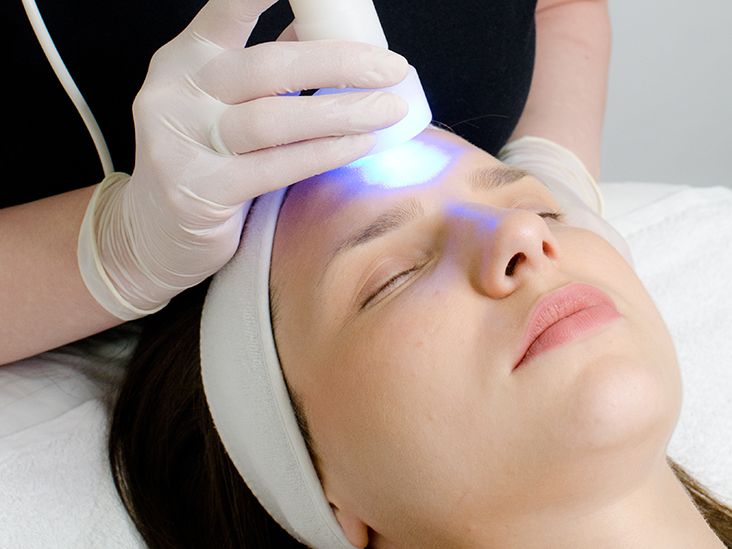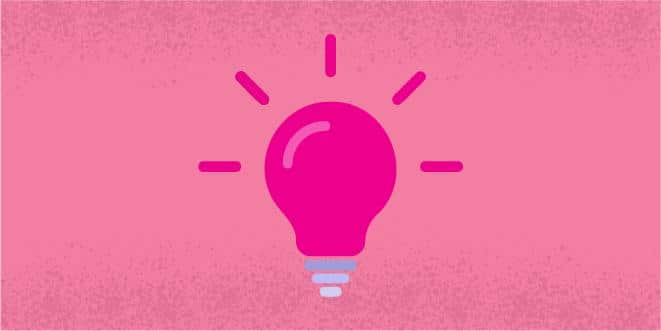In a world where self-care trends come and go faster than you can say ‘namaste‘, red light therapy has emerged as the latest hot topic – literally and figuratively. But before you go diving headfirst into the glow of those rosy bulbs, let’s take a moment to separate fact from fiction. Strap on your UV-blocking goggles and prepare to shed some light on the myths and truths of this radiant wellness practice. It’s time to unleash the red light truth bombs, dispel the rumors, and bask in the enlightening glow of knowledge. Let’s debunk some myths and shed some light on the real deal behind red light therapy.
Common Myths About Red Light Therapy
Let’s debunk some !
First off, no, red light therapy does not give you superpowers. As much as we wish it could turn us into real-life superheroes, unfortunately it won’t give you the ability to fly or shoot lasers from your eyes.
Secondly, red light therapy is not just some trendy fad. It has been scientifically proven to help with a variety of skin conditions, improve muscle recovery, and even boost collagen production. So, sorry skeptics, this is one health trend that actually works!
And last but not least, no, red light therapy is not just for plants. Sure, plants thrive under red light, but so do humans! So next time you’re basking in the glow of a red light therapy session, just remember you’re getting the same benefits as your leafy friends.

Scientific Evidence Supporting Red Light Therapy
Recent studies have shown that red light therapy can have some surprising benefits that go beyond just adding a pop of color to your room. Here are some scientific findings that support the use of red light therapy:
- Red light therapy has been shown to help with reducing inflammation in the body, making it a great option for those dealing with chronic pain or arthritis.
- Studies have also found that red light therapy can improve skin health, reducing wrinkles and helping to clear up acne. Who needs expensive skincare products when you have a fancy red light bulb?
- Researchers have discovered that red light therapy can boost energy levels and even improve athletic performance. So forget chugging that energy drink before hitting the gym and just bask in the glow of some red light instead.
But wait, there’s more! Not only does red light therapy have physical benefits, but it can also improve mental health. Studies have shown that it can help with reducing symptoms of depression and anxiety, making it a versatile therapy option for both body and mind.
Understanding the Different Wavelengths Used in Red Light Therapy
So you’re diving into the world of red light therapy, but all these different wavelengths have your head spinning like a disco ball. No worries, we’re here to shed some light on the subject (pun very much intended).
Let’s break it down like a good old-fashioned game of telephone. The wavelengths typically used in red light therapy range from about 630 to 700 nanometers. Here’s the lowdown on what each wavelength brings to the therapy table:
- 630 nm: This wavelength is like that one friend who always knows how to lift your spirits. It’s great for reducing inflammation and promoting faster healing. Think of it as the cheerleader of the red light therapy world.
- 660 nm: Ah, the sweet spot. This wavelength is known for helping with skin rejuvenation and increasing collagen production. Basically, it’s the fountain of youth in light form.
- 700 nm: Last but not least, we’ve got the deep diver. This wavelength penetrates deeper into the skin, making it ideal for treating muscle soreness and joint pain. It’s like the ninja of red light therapy, sneaking into those hard-to-reach places.
So there you have it, a crash course in the different wavelengths used in red light therapy. Now go forth, armed with the knowledge of the light spectrum, and may your skin glow and your muscles relax in harmony.

Separating Fact from Fiction: Debunking Popular Misconceptions
Have you ever been bamboozled by a juicy piece of gossip or a far-fetched urban legend? Fear not, dear readers! We are here to separate fact from fiction and debunk some popular misconceptions that have been floating around like wacky conspiracy theories.
First up on the chopping block: the idea that eating a watermelon seed will cause a watermelon to grow in your stomach. Sorry to burst your bubble, but that’s just a load of hogwash. Your digestive system is not a magical garden where fruit can sprout at will. So feel free to chow down on those melon slices without fear of turning into a human patch of watermelon.
Next on our myth-busting agenda: the notion that shaving makes your hair grow back thicker and darker. Nope, sorry, that’s just a hairy old wives’ tale. Shaving does not affect the color or thickness of your hair follicles – they grow back just the same as before. So go ahead and shave to your heart’s content, without worrying about sprouting a werewolf-like coat of hair.
And finally, let’s put an end to the age-old belief that lightning never strikes the same place twice. **Wrong!** Lightning can be a fickle beast, striking the same spot multiple times if it feels like it. So if you find yourself caught in a thunderstorm, just remember that lightning doesn’t follow any rules or patterns – it’s a wild and unpredictable force of nature.

Benefits of Red Light Therapy According to Research
Research studies have shown that red light therapy can provide a wide range of benefits that are worth considering. Here are some interesting findings:
- Improves Skin Health: Red light therapy has been shown to stimulate collagen production, reduce inflammation, and improve overall skin tone and texture. Say goodbye to wrinkles and hello to a youthful glow!
- Boosts Muscle Recovery: Athletes and fitness enthusiasts rejoice! Red light therapy can help speed up muscle recovery after intense workouts, allowing you to get back to crushing those gains in no time.
- Enhances Mental Clarity: Need a mental boost? Red light therapy has been linked to improved cognitive function, focus, and even mood. Say hello to your new best friend for those pesky brain fog days.
- Alleviates Pain: Whether it’s chronic pain, arthritis, or sore muscles, red light therapy has been shown to help reduce pain and inflammation, allowing you to move more freely and comfortably.
Important Considerations Before Starting Red Light Therapy Treatment
Before basking in the glow of red light therapy, there are a few things you should consider:
First and foremost, be sure to check with your doctor to make sure red light therapy is the right choice for you. You don’t want to be glowing like a stop sign only to find out later that it’s causing more harm than good!
Next, think about your schedule. Red light therapy is most effective when done consistently, so make sure you have the time and commitment to stick with it. Remember, you can’t just dabble in red light therapy like you do with that new fad diet.
Also, consider your budget. While red light therapy can work wonders for your skin, it can also lighten your wallet. Make sure you’re ready to invest in that radiant glow, both in time and money.
FAQs
Can red light therapy really help with wrinkles and fine lines?
Forget Botox, red light therapy is here to save the day! By stimulating collagen production, this treatment can reduce the appearance of wrinkles and fine lines over time. You’ll be looking like Benjamin Button in no time!
Is red light therapy only for treating skin conditions?
Absolutely not! Red light therapy can also help with muscle recovery, joint pain, and even improve circulation. It’s like a Swiss Army knife for your body!
Are there any side effects to using red light therapy?
Only if looking younger, feeling better, and having improved skin health are side effects! But in all seriousness, red light therapy is non-invasive and has minimal risks, making it a safe option for most people.
How often do I need to use red light therapy to see results?
Consistency is key when it comes to red light therapy. Most experts recommend using it several times a week for at least a few weeks to start seeing noticeable results. But hey, good things come to those who wait!
Can red light therapy help with seasonal depression?
Yes, it can! By boosting serotonin levels and improving your mood, red light therapy can be a game-changer for those winter blues. Say goodbye to seasonal depression and hello to a happier you!
—
Illuminate the Truth with Red Light Therapy
And there you have it! Hopefully, we’ve shed some light on the common myths surrounding red light therapy and helped you see the benefits for what they truly are. Remember, not everything you hear is true, especially when it comes to the healing powers of a little red light. So next time someone tries to tell you that red light therapy is just a fad, you can confidently shine the truth on them. Stay radiant, folks!

